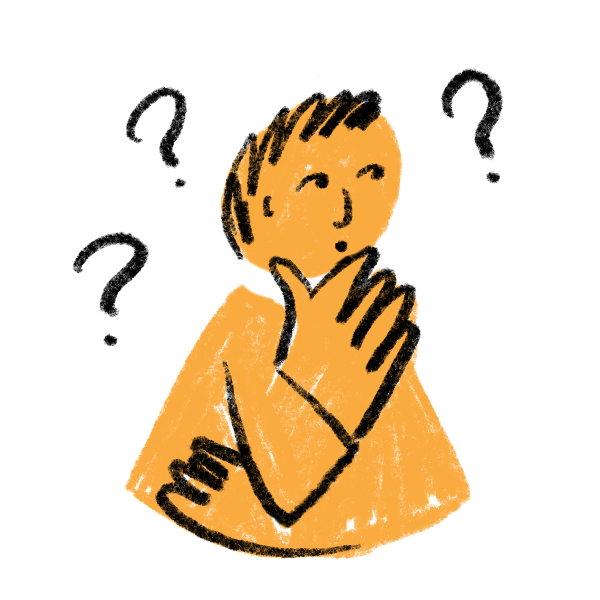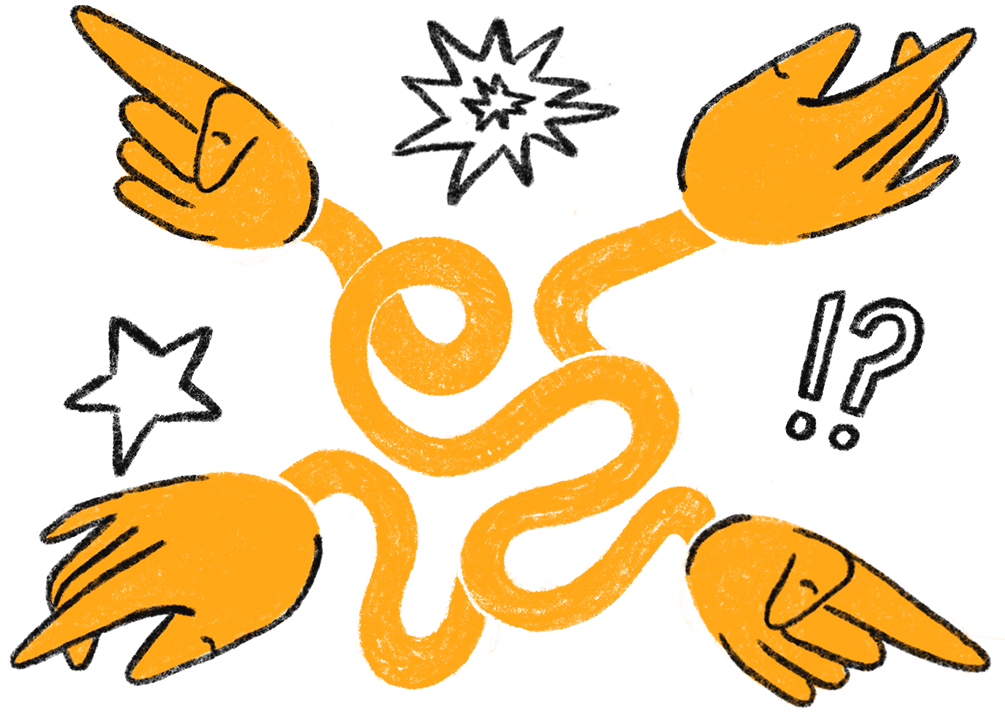The Facts
Rangatahi engaging in unwanted sexual touch is pretty common, but it can lead to fear, shame, humiliation and disempowerment. Check out the stats below to understand how it can affect rangatahi in Aotearoa.
Key Statistics
-
47%
of female students experience unwanted physical or sexual contact.
*Pukeko Research 2021: Christchurch Girls' High School Survey of Sexual Harassment
-
60%
of students have changed aspects of their lives as a result of being sexually harassed.
*Pukeko Research 2021: Christchurch Girls' High School Survey of Sexual Harassment
-
1/10
male rangatahi report unwanted sexual experiences, violence or abuse.
*Youth19 Report 2000: Safety & Violence Survey
Explained
Discover the risks associated with unwanted sexual touch and its impact on rangatahi. Join us as we delve into the topic, exploring strategies to mitigate harm and promote a positive understanding of sexuality.

Unwanted Sexual Touch
What it is
Unwanted sexual touch is non-consensual handling of someone's body, including kissing, pinching, biting, groping, humping or fingering.
Possible Drivers
- Social and cultural norms
- Influence of social media
- Influence of Pornography
- Non-sexual needs (loneliness, lack of connection or affection)
- Power and control
- Entitlement
Impacts
Unwanted sexual touch has considerable impacts on rangatahi. May include:
- Shock, denial and silence
- Avoidance or change of routine
- Loss of ability to focus, learn or enjoy life
- Anger, anxiety or fear
- Feelings of guilt or vulnerability
- Loss of confidence and trust in others
- Depression or mood swings
- Dissociation, nightmares or flashbacks
- Disordered-eating
- Increased drug or alcohol use
Many of these behaviours fall within the realm of sexual harassment and may have legal implications.
Sack Tapping
What it is
The grabbing or hitting of the scrotum and testicles is known as sack tapping. This action can be done in passing, during physical play or sports. While it may not be done out of sexual intent, it can still be unwanted as well as painful.
Possible Drivers
- Social and cultural norms
- Peer pressure and a desire to fit in
- Lack of awareness
- Power and control
- Entitlement
- Connection-seeking
Impacts
Sack tapping causes embarassment and social humiliation, fear, self-blame and loathing as well as dissociation. It can also involve social isolation and avoidance of certain situations or people.
Bra-snapping, Skirt Flipping, Down-trouing
What it is
This relates to any purposeful tampering of another person's clothes. Bra-snapping relates to pulling or releasing a bra strap from behind. Skirt flipping is the action of lifting a skirt to reveal underwear in a public setting. If someone deliberately pulls down someone's pants, that is called down-trouing.
Possible Drivers
- Peer pressure and a desire to fit in
- Poor social skills when connecting with the opposite sex
- Power and control
- Thrill-seeking
- Sexual gratification
- Curiosity
Impacts
Any unwanted touching of clothes comes with embarrassment and social humiliation. It can make rangatahi feel unempowered and fearful, leaving them in a very vulnerable space.
Personal Space Invasion
What it is
Personal space invasion is the action of moving into someone's personal space to intimidate (as an individual or as a group) without invitation.
Possible Drivers
- A desire to fit in
- Seeking connection
- Limited social skills
- Attention-seeking
- Power and control
- Revenge
Impacts
Personal space invasion can make rangatahi fear for their safety, which can make them avoidant of specific spaces or people. This can create anxiety, decreased confidence and a general feeling of vulnerability.
Leering
What it is
Leering is a fixed stare, usually lasting a long period of time, directed to any body part (sexual or not) which causes discomfort for the receiver.
Possible Drivers
- Limited social skills
- Social isolation
- Access to and influence of pornography
- Viewing people as objects for sexual gratification
Impacts
Leering can feel extremely uncomfortable, leading to embarrassment and feeling intimidated. Because rangatahi can feel threatened or unsafe, they may avoid specific spaces or people.
We have a duty (...) to stop schools being places where girls and boys learn that sexual harassment and sexism are routine, normal and accepted. This would transform school life – and society as a whole.
Go Further
Looking to dive deeper into the topic of rangatahi and unwanted sexual touch? Here is a short list of recommended resources which can help bridge any knowledge gaps and offer tips on this theme.
-
Why Isn't Consent Education Compulsory in Aotearoa?
After a survey exposes the extent of sexual harm at her former high school, a filmmaker returns to amplify the student’s call for change by asking a pivotal question: Why is consent education still not compulsory in Aotearoa?
-
What is the Law Around Non-consensual Sexual Touch?
Sexual behaviour without consent is sexual violence, and it's never OK. Check out this page for facts and information about the law as well as some myth-busters.
-
What We Mean by Consent
Want to know what is meant by 'consent'? Tiaki Tinana explains what the 4 keys to consensual behaviour are in this article.
-
What Respect Looks Like
Wondering what it means to show respect? Here are some ideas from Kiwis on what it looks like.
-
Diving Into Healthy Masculinity
What is healthy masculinity? Check out what staff and students at Scots College think.
Prepare
Before deciding whether a behaviour is age-typical, concerning or harmful, you'll need to ask yourself and rangatahi important questions. Use the following prompts to prepare for an evaluation by starting a meaningful kōrero.

Build Context
Consider who was involved, where it took place and when. Are there any safety risks or policy violations? What was the intent behind the action? Were there any external influences involved? Building context can help you understand and respond to the sexualised behaviour while ensuring you meet everyone's needs
Neurodiversity
Some of our rangatahi are neurodiverse. This means they process information, regulate emotions and respond to situations in different ways. Take some time to consider this when identifying concerning or harmful sexual behaviour. It may also be worth considering these unique learning patterns when looking at responding and moving forward.
Cultural Considerations
Our diverse kiwi communities are represented by many different cultures and belief systems. Our goal is to engage with rangatahi using meaningful responses while upholding their identities, values and beliefs of all individuals involved. You may need to adapt communication styles and language to align with cultural norms.
Trauma-informed Responses
Consider the possibility of rangatahi having been exposed to or experienced trauma and how this might have influenced their decisions. These experiences do not excuse their behaviour, but it may help explain it occurring.
Assess
To understand and recognise sexualised behaviour, we use a traffic light system which ranges from green behaviour (age-typical), to orange (concerning), and red (harmful). The level of intervention will depend on the situation and its impact on others, as represented by the colour.
Reminder: no matter where the situation sits on the traffic light system, it should be considered without judgement.

Green
- Flirting
- Holding hands
- Consensual hugging
- Kissing
- Consensual sexual touch (may include touching genitals)

Orange
- Engaging in any sexual contact where consent is ambiguous
- Non-consensual sexual touching (pinching, slapping, humping, grinding, groping, bra-snapping, sack tapping, personal space invasion, following, group surrounding, leering, intimidating)
- Any sexual contact with others of significant age or developmental differences

Red
- Any unwanted sexual contact
- Any sexual contact with others of significant age or developmental differences
- Sexual activity in the context of exploitation (in exchange for money, goods or substances)
- Public exposure of genitals
- Attempts to forcefully expose others' genitals
- Any sexual contact involving force, bribery, manipulation, aggression, violence or degradation
- Public masturbation*
- Rape (unwanted penetration: oral, genital, digital/fingering, penile intercourse or using an object)*
- Sexual contact with animals*
*If any of the behaviours are against the law or organisational policies, are of concern to others, place a rangatahi (or others) at risk or are life-threatening; you, as a safe adult with information, have a duty of care to take action. Contact STOP, WellSTOP, SAFE Network and/or seek Police advice. More information on making contact in our Respond section.

Green
- Flirting
- Holding hands
- Consensual hugging or kissing
- Consensual sexual touch (may include genital touching)
- Enthusiastic and consensual sexual activity (may include intercourse, oral genital contact with similar-aged peers)*
*Please note: the age for sexual consent in New Zealand is 16 years

Orange
- Engaging in any sexual contact where consent is ambiguous
- Non-consensual sexual touching (pinching, slapping, humping, grinding, groping, bra-snapping, sack tapping, personal space invasion, following, group surrounding, leering, intimidating)
- Any sexual contact with others of significant age or developmental differences

Red
- Any unwanted sexual contact
- Any sexual contact with others of significant age or developmental differences
- Sexual activity in the context of exploitation (in exchange for money, goods or substances)
- Public exposure of genitals
- Attempts to forcefully expose others' genitals
- Any sexual contact involving force, bribery, manipulation, aggression, violence or degradation
- Public masturbation*
- Rape (unwanted penetration: oral, genital, digital/fingering, penile intercourse or using an object)*
- Sexual contact with animals*
*If any of the behaviours are against the law or organisational policies, are of concern to others, place a rangatahi (or others) at risk or are life-threatening; you, as a safe adult with information, have a duty of care to take action. Contact STOP, WellSTOP, SAFE Network and/or seek Police advice. More information on making contact in our Respond section.
Escalating your Assessment
Sometimes behaviours can move from green to orange, or from orange to red. This depends on context, intent, impact, and power dynamics between individuals. These questions should help you understand when the situation needs escalating.

What was the intent behind the behaviour?
Question whether the intention was sexual or whether it came from a place of curiosity, play, peer influence or social norms. If the intent was sexual, the situation may need to be escalated.
Has the rangatahi taken part in this kind of activity before?
If this is repeated behaviour or the young person has not responded to past correction, this is a sign you may need to escalate.
Is this behaviour age-expected among peers?
Ask yourself what the expected knowledge and experience for their age may be. If the situation does not match their expected development, it may need to be escalated.
Was there mutual consent?
It's important to understand whether all rangatahi involved were consensually doing so. Touch without consent may require escalation.
Did the behaviour cause distress?
Was any individual in this situation significantly impacted? If any individual was significant impacted by the behaviour, consider escalating this situation.
Was there an imbalance of power?
Imbalance of power can involve age, development, authority as well as social, cultural or physical difference. It can be helpful to consider the dynamic between the individuals involved.
Example Assessment
This example evaluation outlines the variety of behaviours that exist in any scenario. It can help you pin-point when behaviours cross from green to orange or red territory.
Unwanted Sexual Touch at Rugby Practice
Everyday at lunchtime, Neihana (15 years old) joins a group of similar-aged rangatahi for a game of casual rugby. It's always a fun time, and allows them to let out some energy before returning to class.

Neihana and Tom, a fellow player, exchange consensual bum pats after winning a point.

The group of boys make tame sexual jokes in between passes.

During a scrum, Tom sack taps Neihana. He adds: "You like that?!". Everybody laughs, except for Neihana who is embarrassed.

Throughout the game, other boys join in sack tapping Neihana. He tries to laugh through the pain and humiliation.

The following weeks, Tom seeks out Neihana in school corridors to sack tap, grind and hump him.

During the next game, Tom pulls Neihana's pants down, forcefully exposing Neihana's genitals.

Eventually, Neihana stops playing rugby at lunchtime and avoids the group in the hallways. They tease him about it.

Neihana feels so sick about the situation that he asks to not go to school.
Assessing the harm
This scenario can be considered red. While the situation starts in a green space, with consensual bum pats and joking, it quickly escalates into orange with unwanted touching of Neihana's genitals, grinding and humping. The persistant nature of the unwanted, non-consensual touch is concerning, but when Tom forcefully exposes Neihana's genitals during the game, the situation evolves to red. The impact on Neihana's life is immense, with him disengaging academically and withdrawing socially. There is potential for real harm.
Staying Safe
Safety is a priority when discussing sexualised behaviour. This can mean addressing any urgent safety concerns, but also creating an environment where rangatahi feel respected and supported. In this section, we describe what safety means, now and later, for each relevant party.

Rangatahi
Creating a safe space for open communication is crucial for rangatahi to feel comfortable discussing their behaviour, feelings or concerns. By responding in a thoughtful manner, you can establish a foundation of trust while promoting their healthy wellbeing.
Now
- Find a comfortable setting where you can have an uninterrupted conversation
- Avoid discussing the concern in front of others where possible
- Have a calm, non-judgemental attitude throughout
- Make active listening your best friend
- Be compassionate and reassure teens there is a way forward
Later
- Remind rangatahi of the risks and consequences associated with unwanted sexual touch
- Seek support from trusted adults who can provide guidance and help navigate those challenges
- Get permission before involving their whānau, where possible
- Check for any wellbeing concerns that might result from informing their whānau
- Keep to the promised confidentiality, when possible
- Clarify boundaries before communicating with other parties
Myself
When talking about sexualised behaviour, it's important to take care of yourself too. Here are some tips to keep yourself safe during these conversations.
Now
- Set your own boundaries before conversations
- Keep yourself updated on the latest best practices
- Seek consent from rangatahi before engaging in discussion
- Communicate confidentiality limits carefully
- Check your biases and stay open-minded
- Remember to care for yourself too
- Know when to escalate to someone else
- Call STOP if you need more advice
Later
- Keep up with supervision to ensure you are supported
- Press pause yourself. Take breaks by doing things you love
- Be aware of your own triggers and experiences
- Reach out for a chat with a trusted colleague or supervisor (encouraging privacy)
- Call STOP if you need more advice
Whānau
Though they might not be directly involved, the young person's whānau will often experience a range of emotions when faced with sexualised behaviour. Good communication and education is the best way to hold the mana and safety of all involved.
Now
- Ensure all family members are safe
- Encourage open and honest communication within the family
- Foster an atmosphere of trust and non-judgement
- Establish clear boundaries within the whānau
- Reinforce the importance of respect and consent
- Discourage the use of social media to gossip
- Encourage reaching out directly to those involved rather than talking about them behind their backs
- Seek professional support if it feels too heavy
Later
- Promote education and awareness about healthy relationships, consent, and boundaries within the family
- Offer support for affected family members
- Encourage self-care practices for each family member
- Respect the confidentiality and privacy of all family members involved
Those Impacted
Addressing safety for those impacted by sexualised behaviour is crucial to their wellbeing. Here are some tips on how to approach it.
Now
- If someone is in immediate danger, prioritise their safety
- Establish a safe and non-judgmental space
- Show belief in the person's story and validate their experiences
- Remind them what happened wasn't their fault
- Empower them to make choices for their wellbeing
- Ensure those impacted know choosing their safety over any potential shame is important
- Adhere to professional codes of conduct and ethical guidelines
- Facilitate bringing in support or assistance
*Refer to our Understand/The Impacts section to understand what those impacted may be experiencing
Later
- Explain it is common to feel impacts belatedly
- Remind them what happened wasn't their fault
- Normalise help-seeking, even down the line
- Reiterate safety and wellbeing come above shame
- Reassure about speaking up, at any point
*Refer to our Understand/The Impacts section to understand what those impacted may be experiencing
Talk About It
Talking is a critical step in reflecting and moving forward. Take time to listen to the young person's perspective and give them the opportunity to think critically about their behaviour to collaboratively decide on next steps.
You can't change what you don't acknowledge
Conversation Starters
-
It takes a lot of courage to discuss these things. I'm here to listen
-
This seems a little out of character for you. How did this all start?
-
I'm curious to understand your perspective. Can you tell me why you chose to [bra-snap, skirt flip, sack tap, down trou] your classmate?
-
What's up with the sack tapping at rugby? That's not a great way to treat your mates
-
Leering seems to be a big thing within your peer group. Why do you think that is?
-
Do you understand why they may be upset that you [bra-snap, skirt flip, sack tap, down trou]?
-
Does humiliating people make you feel good? Why is that?
-
Have you had a think about what you were trying to achieve by doing that?
-
Do you think this behaviour crosses any boundaries? At which point do you think it would cross a line legally / ethically?
Conversation Cards
Inviting Conversation
Use these prompts to invite kōrero with rangatahi. This section isn't about investigating the issue too deeply, but rather inviting rangatahi to open a dialogue with you.

Call It Out
- Bra-snapping to get a girl's attention makes them feel uncomfortable. It's not OK
- Nobody wants to be humped like that. You could lose mates from doing that. It needs to stop
- Groping is sexual harassment. You're crossing a line
- If you carry on griding and humping people, there could be serious consequences. Give it a rest
- You might think sack tapping makes you cool, but it's actually really humiliating. I know you can do better
- You've been following girls home and intimidating them. That's not OK
- Invading people's personal space affects your relationship and reputation. Have you thought about that?
- Some things are funny, but flipping someone's skirt or down-trouing is not one of them
The Cs of Responding
- Be CALM, no matter what you learn
- CONNECT and be CURIOUS with rangatahi opposite you
- Have COMPASSION and remember growing up is challenging
- Consider CONTEXT to ensure you have all the needed information
- CORRECT and COACH rangatahi to help them find healthy paths towards green behaviours
PACE
Playfulness - Acceptance - Curiosity - Empathy
- If appropriate, use your relationship with rangatahi to engage in a way that is playful
- Demonstrate acceptance by engaging non-judgmentally with rangatahi
- Have curiosity, by enquiring and encouraging self-exploration
- Be empathetic, considering the experience and perspective of rangatahi
Naive Enquiry
Naive enquiry uses open-ended and non-judgmental questions that don't assume any prior knowledge or information. These are designed to understand rangatahi better without overwhelming them:
- I'm curious...
- I'm wondering...
- I'm interested in hearing...
- Tell me about...
- Help me to understand...
Inviting Reflection
Use these prompts to dive deeper into the situation at hand. This is a good time to build on the conversation topics that came up during our Inviting Conversation section.
Peer Culture
- What's the deal with sack tapping within your friend group? Is it something that happens often?
- I've noticed that rangatahi seem OK with grinding each other for a laugh. How can you tell if it's gone too far?
- I wonder if people are bra-snapping and skirt flipping to fit in with their mates. What do you reckon?
- Why do you think guys like to follow or stare at girls, even if they seem scared?
- What reaction are you looking for when you bra-snap or skirt flip?
Empathy
- Imagine if you were walking home by yourself and suddenly a group of guys surrounded you. How would that feel?
- How do you think she felt when you snapped her bra in front of all her friends?
- Is it possible they might have felt bad when you did that, but didn't know how to tell you to stop?
- If someone were staring at me like that, I'd find it really uncomfortable. What about you?
- I know some guys who have stopped playing rugby altogether because of all the sack tapping. Do you think that's fair?
- Girls are avoiding a whole area because they're scared of skirt flipping. How does that make you feel?
Entitlement
- What gave you the idea it's alright to touch people like that, without their consent?
- Where did you get the idea it's alright to follow and scare a girl while she walks home from school?
- Do you know about the laws around harassment?
- I saw you grab someone for no reason. Why do you think you're entitled to do that?
- Do you think getting a few laughs from friends was worth you doing this?
- Don't you think everyone deserves to feel safe?
Safety
- Do you think you create a safe atmosphere by staring at others like that?
- Can others feel respected if you snap their bra or flip their skirt everytime they walk past?
- Do you think they can respect you as a person if you sack tap them on the field?
Respecting Boundaries
- How can you recognise when someone else is comfortable with you being in their personal space?
- What signs (body language or words) might tell you it's not OK?
- In conversation, how can you respond respectfully to someone else's boundaries?
- If someone kept touching you without consent after you said "stop", what would you do or say?
Please check ethical boundaries and professional body codes before asking any questions. Consider if someone else would be better suited to have these conversations.
Inviting Change
Use these prompts to explore opportunities for change. This is a good time to collaboratively explore how to move forward from the issue.
Respecting Boundaries
- How can you recognise when someone else is comfortable and consenting?
- How can you make sure you're listening and being sensitive to others' needs and boundaries?
- In conversation, how can you respond respectfully to someone else's boundaries?
- Have you thought about what things are off-limits and why?
- How would you like others to treat your body? Can you reciprocate?
Developing Trust
- Is trust something you want to cultivate? How can you work towards it?
- What is the opposite of a trustworthy person? Where do you think you fit?
- How can you build trust or demonstrate trustworthiness in relationships?
- What actions can you put in place right now to rebuild trust with someone?
Creative Positive Peer Culture
- How could you influence your mates to be more respectful towards the girls?
- Do you think humiliating others should be normalised? How can you help change that?
- How can you introduce some changes within your friend group to create more respectful habits?
- How could you have a conversation with your rugby team about whether sack tapping is appreciated or not? If it's not OK for everyone, what will you do?
Developing Empathy
- What body language might tell you someone feels afraid or embarrassed?
- What facial expressions might show what you did wasn't good?
- If you stopped sack tapping, do you think they'd feel safer around you?
- What might indicate to someone that you are considering their feelings?
- If you thought about what others want before you acted, what would you do differently?
Respect
- How can you show a person what they want matters?
- What could you do to show someone that you respect their body?
- How else could you show confidence without making others feel unsafe?
- What could happen in your future relationships if you keep this up?
- I assume you want to feel safe and respected at school. What can you do so others also get to feel safe?
Please check ethical boundaries and professional body codes before asking any questions. Consider if someone else would be better suited to have these conversations.
Moving Forward
Change is possible when rangatahi receive the right support and strategies. Allowing them to learn, acquire new skills and embrace healthier behaviours is key in empowering them to move forward.

Accountability
At times, rangatahi need to be held accountable by responsible adults, particularly if behaviour has been repeated.
Short-term
- Rangatahi should apologise for their actions and words
- Rangatahi should apologise and repair the situation when appropriate
Long-term
- Ongoing reinforcement from adults, whānau and community to promote positive touch
- Open and direct communication should be encouraged between home, the community and school
- Clear boundaries should be set in place in a school setting, youth context, club...
Education
When rangatahi have more understanding and knowledge, they are better informed to make good choices.
Short-term
- Encourage education on sexual and verbal harassment laws, as well as the Human Rights Act 1993
- Ensure the rangatahi is aware of the legal implications related to sexual behaviour
- Explore unintended consequences including impact on personal reputation and social standing
- Explore the idea of understanding your peers - what might have sounded cool in your head does not always land well in real life
Long-term
- Encourage a culture of valuing people, respectful touch, boundaries and kindness
- Introduce the option of respectfully speaking up against the sexual touch they witness
Positive Role Models & Influences
Moving forward can be supported through encouraging rangatahi to seek out positive role models and influences.
Short-term
- Identify positive role models and influences to emulate. These people can be from personal spheres, social media or live in the wider community
- Recognise and identify the benefits of following positive influences
- Examine the rangatahi's personal ethics and align them to mana-enhancing practices
- Encourage working towards becoming someone they are proud of
- Provide positive reinforcement
Long-term
- Communicate your high hopes for the rangatahi
- Provoke a desire to strive towards positive sexual behaviours
- Create a goal for the rangatahi where they become an ambassador of their own learning and influence their own peer group
Communication & Support from Whānau
Being quick to inform and communicate clearly with whānau and carers is critical to ensuring ongoing safety and healthy change.
Short-term
- Inform the whānau and carers early and frequently keep them up to date
- Use clear and factual language to explain the behaviour
- Explain the rationale for each action and consequence
- Involve the whānau in problem-solving
- Develop a clear, time-bound plan with the whānau and carers that they feel comfortable supporting and following through
- Document your findings
Long-term
- Check-in and address any concerns as soon as they arise
- Make yourself or someone suitable available to follow up with whānau and carers whenever needed
- Be open and supportive, encouraging the whānau and acknowledging their efforts and successes
- Offer counseling, pastoral care, kaumatua where available
Minding your Identity
Short-term
- Highlight the risk for reputational damage off the back of their behaviour and choices
- Explain to rangatahi that they may be contributing to an unsafe culture through unwanted sexual touch
- Underline the benefits of being known as a respectful person
Long-term
- Encourage rangatahi to actively challenge damaging sexual behaviour
- Over time, work towards building mana-enhancing and respectful attitudes and actions in all areas
Involving Others
At times, sexual behaviours may warrant you involving the rangatahi's close ones or appropriate professionals. Read more on when to reach them and how.

When
- Any orange or red behaviour has been reported
- Rangatahi has not responded to correction
- Sexual behaviour is occurring in the wrong context (at school, for instance)
How
- Inform the rangatahi prior to contacting whānau/carers
- Prioritise safety for the rangatahi first
- Call whānau/carers and invite them in for a face-to-face conversation as soon as possible
- Follow-up and check-in using the whānau/carer's preferred method
When
- Acknowledgement of a boundary being crossed is needed
- Referral to services, counselling or offer of pastoral care needs to be discussed
- A perspective on an incident needs to be heard
- Input into the process for restoration / apology / reporting is needed
How
- Check if the rangatahi is willing to engage
- Communicate with care, giving rangatahi options when possible
- Reiterate that safety comes before shame
- Reinforce their agency and ability to make choices if they do not want to act
- Ensure they are aware of potential impacts on wellbeing and trauma responses
- Provide contact details of available local services and support
When
- There is rationale for informing teachers (for instance, the person impacted is in their class)
- There are practical considerations (for instance, consequences meaning certain games are off limits)
How
- Communicate with discretion while upholding the privacy of all involved
- Remember to abide by school and organisational policies/procedures
When
- There is a trending behaviour among peer groups (eg sack tapping, down-trouing)
- You are dealing with a high profile situation - Sexual harassment has been normalised among peer groups
- Large collectives of rangatahi are unaware of laws and risks associated to sexual harassment
- There has been concerning behaviour requiring consistent messages and /or group education
How
- Find the best people to speak to depending on age, context and the need for expertise
- Inform whānau/carers of the concerning behaviour being targeted and context
- Communicate with discretion while upholding the privacy of all involved, where possible
When
- Behaviour is recognised as red, call STOP/WellStop or Safe Network for a phone consult
- The behaviour is orange and has potential to impact the ability for rangatahi to attend school
- There are historic concerns regarding the rangatahi's sexual behaviour
How
- Call STOP (South Island): (03) 353 0257
- For phone enquiries to discuss orange or red behaviours, call WellSTOP (Lower North Island): (04) 566 4745 or SAFE Network (Upper North Island): (09) 377 9898
When
- A red behaviour has occured and advice is needed from Police or Police Youth Aid about the law
- An impacted person wants to lay a complaint - Laws have been broken or a criminal offence is evident
- Educational level input is warranted (via School Community Officer) for persistent orange behaviours
- When your Child Protection Policies indicate contacting the Police is needed
How
- Call your local Police Station
- Call your Child Protection Team or Lead Police Contact (Schools)
- For emergencies, dial 111
When
- Your care and protection policy indicates contact with Oranga Tamariki
- The behaviour is orange and rangatahi are already involved with Oranga Tamariki
- The behaviour is red and there are care and protection concerns for involved parties
How
- Inform whānau and carers first and ensure everyone understands the reason behind reaching out
- Contact assigned Social Worker or use the freephone number 0508 326 459 for their call centre
What if...
These kōrero with rangatahi can sometimes be confronting and trigger a variety of reactions. This is completely normal. Here are some tips to navigate some of the trickier responses you might come across.

- Stay calm yourself
- Ensure your immediate safety and theirs
- Acknowledge their anger
- Explore where their anger might be coming from
- Offer understanding
- Search for solutions
- Offer to take a break
- Use information carefully and factually
- Create understanding that there are different stories
- Give them the opportunity to share their perspective
- Find the points of agreement
- Explore the points of disagreement
- Ensure non-judgement and blame
- Reassure their behaviour doesn't define them and can be worked through
- Anticipate this by noticing signs of disagreement or distress
- Stay calm and co-regulate
- Offer to have a break and resume later
- Be empathetic of their state of mind
- Remind them how useful collaboration can be
- Encourage resolution and ensure safety
- Prepare for various responses before sharing the story
- Create a safe and calm environment for discussion
- Use factual, non-judgemental language
- Show empathy and kindness for all individuals
- Acknowledge strong feelings
- Offer breaks if the conversation becomes too overwhelming
- Prioritise safety for all individuals
- Follow procedures if the situation escalates
- First, check your values: are you open to different perspectives?
- Ask the rangatahi to evaluate their behaviour from different settings
- Consider values set by the law, school etc as a reference
- Recognise the young person's development stage. Values can evolve with time and experience
- Be hopeful for their growth
- Listen and validate their experience
- Separate their disclosure from their concerning / harmful actions
- Acknowledge their difficulties
- Ensure immediate safety for all individuals
- Support their agency by asking their preference on how to move forward
- Support them in getting help
- Listen, empathise and validate their feelings
- Have compassion
- Acknowledge how these feelings might be impacting them
- Help them regulate and get calm (break, breathe, walk and talk, peer support)
- Reassure them that all things can be worked through and faced together
- Offer to be a support
- Identify some personal strengths or characteristics and emphasize them to show rangatahi they have the tools they need to move forward
- Promote self-compassion and the importance of giving themselves time and space


